South Kalimantan Governor Sahbirin Noor’s Corruption
South Kalimantan Governor Sahbirin Noor is suspected of receiving commissions on three projects in the e-catalog. He has not been seen since being named a suspect.
maaf email atau password anda salah
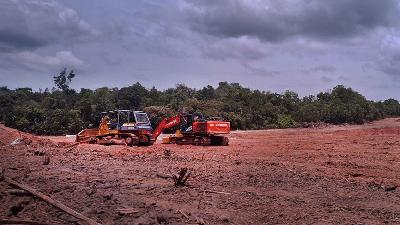
South Kalimantan Governor Sahbirin Noor is suspected of receiving commissions on three projects in the e-catalog. He has not been seen since being named a suspect.
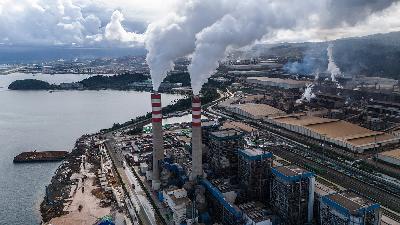
The growth of sustainable projects is sluggish, far behind the extractive sector. Promises of climate crisis mitigation are proving difficult to realize.
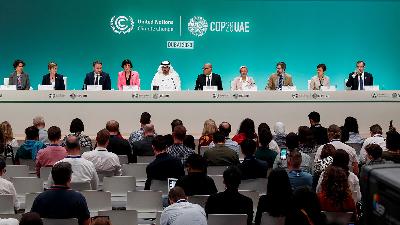
The loss and damage fund has been approved in COP28. It is still far from adequate to overcome damage resulting from climate change.

Climate crisis mitigation creates new disparities. Developing countries do not have the same capabilities as the developed ones.
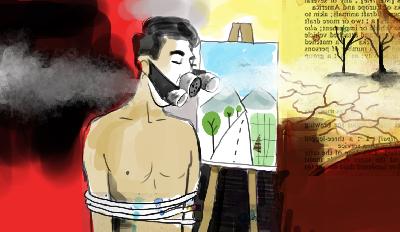
In the villages, the climate crisis is marked by wild hogs trampling the rice fields. They have little choice as biodiversity collapses.
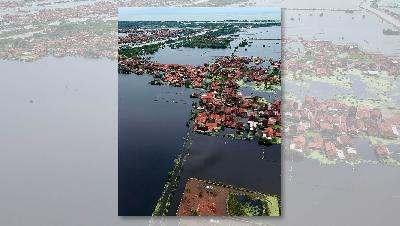
Indonesia faces an increasing threat of disasters caused by the climate crisis. Development that ignores the safety of the environment must be abandoned.
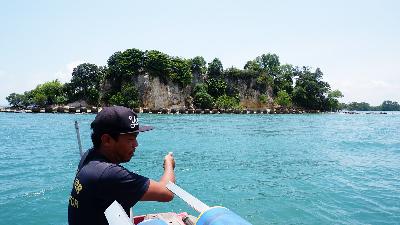
Hydrometeorological disasters caused by climate crisis are occurring more frequently. Several small islands and coastal towns are becoming inundated and are in danger of going underwater completely.

The government needs to change the way it views climate change mitigation funds from a cost to an investment.
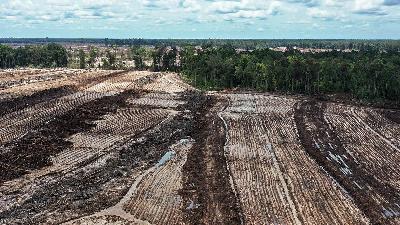
The food estate project in Central Kalimantan went into motion before relevant regulations and an environmental analysis were published. Prabowo Subianto and Moeldoko are behind companies running food estates.
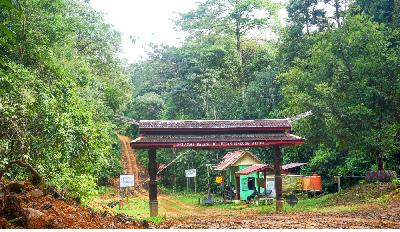
East Kalimantan’s wilderness has managed to keep the Wehea Protected Forest “hidden” amid logging and oil drilling. The 38,000-hectare forest is home to a variety of protected species, including the orangutan (Pongo pygmaeus). In the face of numerous challenges, the Wehea Dayak tribe has taken firm action to safeguard and preserve their forest and its resources, and are now working with the government, non-profit organizations and even companies. Meanwhile, the customary community also strives to maintain the natural balance by celebrating Lom Plai, a thanksgiving tradition. In celebration of World Biodiversity Day on May 22, Tempo English reports.

Meliana Christanty has documented hundreds of Kalimantan’s traditional dishes. She is also popularizing the region’s unique recipes through cooking classes and social media.

Following up on the Conference of the Parties 21 (COP21) held in Paris last November, the environment and forestry ministry, in collaboration with the Norwegian government and the United Nations Development Programme, held the Climate Festival. The festival was themed "Prevent two more degrees Celsius for the welfare of the people and future generations."
Held at the Jakarta Convention Center from February 1 to 4, the event sought to raise awareness with forums, interactive discussions and an exhibition on climate change mitigation.

Born in Strasbourg, capital city of Alsace in northern France, Philippe Lacoste, 57, has spent more than 20 years dealing with climate issues. To Lacoste, who grew up in an industrial city, the environment was not a big part of his life. But the holder of a master's degree in environmental science from the National School for Public Infrastructures (ENTPE) decided that he wanted to save the planet. "I saw the damage caused by the waste of industrial revolution," he said.
This year, Lacoste was appointed as the special representative for the climate conference (COP21) in Paris, which will be held between November 30 and December 11. It has been a daunting task for him, given that all 196 signatories in the upcoming conference are expected to come to a consensus on climate change. Nevertheless, Lacoste remains hopeful. He believes that people's mindset toward the issue has begun to change. "People are more aware of it now," he added.

THE Central Kalimantan provincial government will soon build a bridge linking it with West Kalimantan province at Tumbang Samba village, Katingan regency, Central Kalimantan. The bridge will have a length of 450 meters over the Katingan River. "We've submitted a proposal to the central government. Construction starts next year," said Leonard B. Ampung, head of the Central Kalimantan Public Works Agency, last week.

Russia has pledged to build a refinery to process bauxite and produce alumina in West Kalimantan. "Rusal is now working very closely on the project," said Russian Ambassador to Indonesia Mikhail Galuzin at his residence in Jakarta on March 5. Rusal is the world's largest aluminum company.
In addition to the refinery, Galuzin said Russia would build generators to provide electricity. Meanwhile, he added that efforts would be made to assist an ongoing railway project East Kalimantan as Indonesia strives to improve its infrastructure and connectivity. "We are very committed and the amount of investment has come out to more than US$1 billion," he said.

Foreign researchers rang the alarm bells. "The survival of endangered species in Kalimantan is increasingly threatened," warned Matthew Struebig, biological conservation professor at the University of Kent in England. Struebig and his colleagues outlined the threat in the January 22 edition of the journal Current Biology.
Based on the researchers' findings, almost half of the animals' habitat will disappear in the coming two or three decades. In other words, one in three mammal species on the island of Borneo will lose 30 percent or more of their habitats by 2080.

A few enterprising business people in Central Kalimantan province have found a new way of touring the area's meandering rivers and dense forests. By modifiying the Dayak's traditional boat, they have created a floating hotel, which can take visitors downstream to traditional villages and observe up close the flora and fauna of pristine forests. In return, the local population earn additional income without having to cut a single tree. However, such efforts are not supported by the proper infrastructure to make the enterprise more effective. Tempo English reports from Central Kalimantan.

Kalimantan has the largest forest area in Indonesia, and the highest rate of forest destruction among the archipelago's islands. According to the NGO Save Our Borneo, 80 percent of forest destruction in Kalimantan is caused by expanding oil palm plantations. Pastor Samuel Oton Sidin of the OFM Cap decided to do something about the loss of forests on the island. He mobilized communities to replant trees in barren mountain slopes, succeeding in greening 108 hectares of land around the Tunggal mountains of West Kalimantan province. Environmentalist Galuh Sally managed to plant 1.6 million of gaharu tree seedlings in South Kalimantan. On the occasion of World Tree Day on November 21, Tempo English reports on how heroes like Father Oton and Galuh are able to motivate people to fight and save their forests.

The Climate Change National Adaptation Action Plan is being formulated, so institutions can act in unison.

Water is abundant in West Kalimantan, yet the province has trouble obtaining clean water supply. Some 80 percent of inhabitants rely on rainwater for drinking and cooking, which gradually ends up damaging their teeth.

Kalimantan logs continue to flow into Malaysia. Officials blame each other for the island’s deforestation.

Lighthouses will be constructed at Gosong Niger in West Kalimantan, so fishermen will no longer go astray.

The Kalimanis Group hasn't paid employee wages for three months, despite rising international timber prices. Why?

In Central Kalimantan’s Tanjung Puting National Park—one of the largest conservation forests in Indonesia—millions of cubic meters of ramin (Gonystylus spp) and meranti (Shorea spp) trees are cut down, hauled out and sold illegally, costing the country more than Rp70 billion a year.
Pangkalan Bun, the capital of the West Kotawaringin Regency in Central Kalimantan, has become the most important base for the illegal business, a trade which is spreading like a contagion. It has given birth to a “local king” who has the power to make people from illegal loggers to high-ranking officials tremble with fear. His name is Abdul Rasyid, one of the members of the People’s Consultative Assembly (MPR) from the Golkar Party.
Who is Abdul Rasyid? Is it true that he is the mastermind behind the massive timber theft in Tanjung Puting? Follow TEMPO’s investigation.
International Tuesday, October 22, 2002 Edition

The irony began on an island with plentiful mineral resources. It was noticeable in Sangatta, a small town in East Kalimantan where the earth is blackened with abundant coal. Extracted for almost a decade by PT Kaltim Prima Coal (KPC)a joint venture between two foreign giants, Britains British Petroleum and Australias Rio Tintoincome from the mineral should have been allocated to Indonesia as of 1995. However, the case of divestment of KPC shares, delayed for the last six years, keeps the wealth beyond the expectation of public welfare promotioneven amid the euphoria of political and economic decentralization. The tradition of low transparency, the popular sense of justice being victimized by local elite rivalry, the feud between central and regional institutions, high-level lobbying and the trickery of mock firms are the murky stories arising from the heat of the struggle for Sangatta coal.

The producer of the driving simulator turned out to be inexperienced. Meanwhile, his business collaboration collapsed.

Eight generals are competing to be the next police chief. Selected a year ago, the candidates are uniformly described as having ‘simple, harmonious and religious’ lifestyles. Some, however, live in luxury.
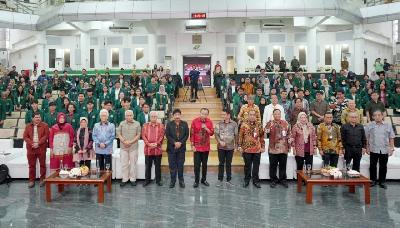
Esensi berkuasa bukan lagi untuk berkhidmat kepada publik, namun sebagai upaya pelanggengan kekuasaan
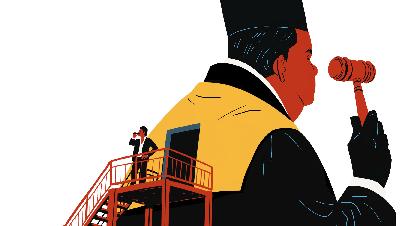
Mafia peradilan Mahkamah Agung hilang satu tumbuh seribu. Perlu bersih-bersih secara menyeluruh.
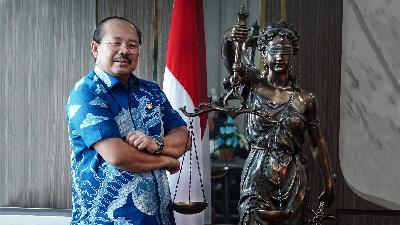
Ketua Komisi Yudisial Amzulian Rifai menjelaskan korupsi di lembaga peradilan yang menyeret para hakim.

Di Paris, Sitor Situmorang berjumpa dengan pertarungan pengaruh politik melalui kebudayaan di tengah Perang Dingin.

Tiga pasangan calon kepala daerah yang diusung oleh PDI Perjuangan terus memaparkan visi misinya
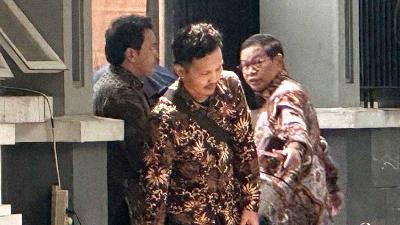
Megawati Soekarnoputri tak sreg kader PDIP masuk kabinet Prabowo. Pramono Anung berkomunikasi dengan Prabowo.

Para pengungsi Rohingya masih tinggal di beberapa penampungan sementara yang kurang memadai di Aceh.

Desainer Didiet Maulana mengekspresikan kedalaman emosi lewat puisi. Memberikan perspektif baru.
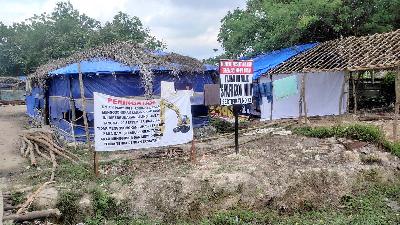
Pengungsi Rohingya yang tinggal di Pekanbaru lebih leluasa bergerak dan tinggal di wisma. Anak mereka bisa bersekolah.
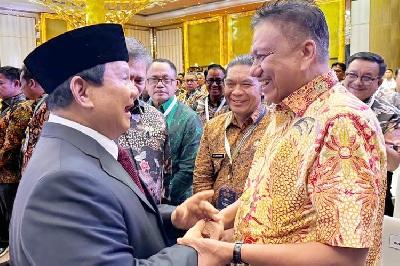
Megawati dan Prabowo akan bertemu sebelum pelantikan presiden pada 20 Oktober 2024.
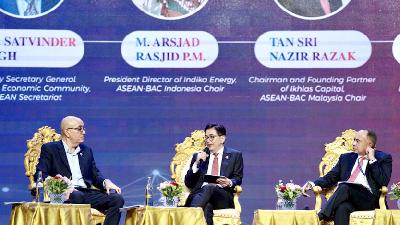
Anindya Bakrie ditengarai melanggar kesepakatan. Rencana percepatan musyawarah nasional Kadin terancam berantakan.
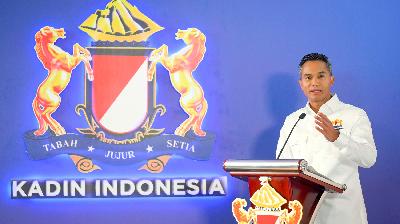
Dukungan pemerintah membuat Kadin daerah dan asosiasi mulai meninggalkan Arsjad Rasjid. Beralih ke Anindya Bakrie.
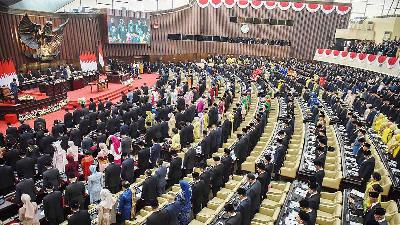
Dinasti politik di DPR dan predator panti asuhan.
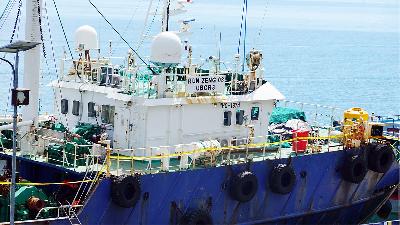
Penangkapan ikan ilegal dan perbudakan masih terjadi di perairan Indonesia. Anak buah kapal rentan disiksa.

Dian Oerip turut melestarikan wastra Nusantara dan memberdayakan penenun di daerah. Menghidupi kain tradisional dengan hati.
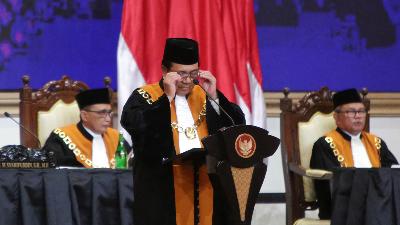
Mahkamah Agung diperkirakan memilih ketua baru pada 15 Oktober 2024. Ada empat hakim agung yang akan ikut pemilihan.

VIVA Group menghadapi proses PKPU dan terancam pailit. Ada manuver untuk melobi kreditor dan memangkas utang.

Saham VIVA tak diperdagangkan karena ada pelanggaran. Kinerja keuangan terus memburuk.

Kue iklan media kian tergerus media sosial dan platform digital. Perlu terobosan untuk bersaing di medan yang tak seimbang.
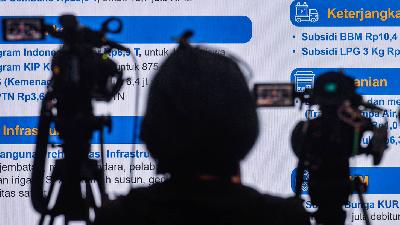
Perusahaan media mengalami guncangan akibat perubahan lanskap bisnis yang begitu cepat. Menuju titik keseimbangan baru.
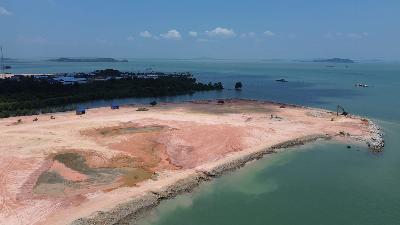
Pemerintah mencanangkan sejumlah daerah digunakan sebagai zona pembersihan sedimen dan pasir laut.

Anggaran pertahanan India nomor empat di dunia. India juga memodernisasi persenjataannya.

India berambisi mengembangkan teknologi antariksa setelah berhasil mendaratkan wahana Chandrayaan-3 di bulan.
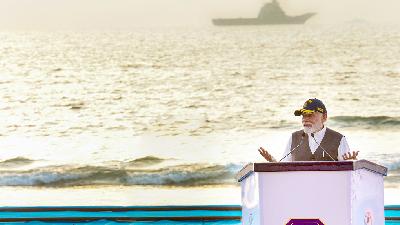
PM India Narendra Modi memprioritaskan keamanan di Samudra Hindia dan Pasifik dengan memperkuat pertahanan laut.

Ada tangan kekuasaan dalam dualisme kepemimpinan Kadin antara Arsjad Rasjid dan Anindya Bakrie. Tak berpengaruh bagi publik.
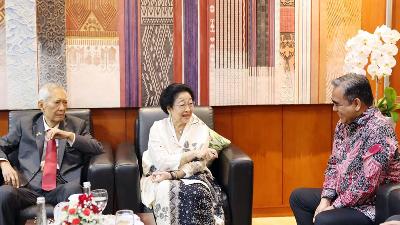
Prabowo Subianto dan Megawati Soekarnoputri akan bertemu dalam waktu dekat. Ada dua kursi menteri untuk PDIP.
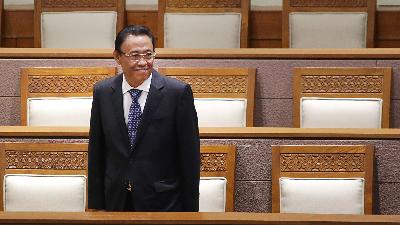
KPK turut menelusuri peran anggota dan auditor BPK dalam dugaan penggelembungan dana iklan Bank BJB. Peran agensi ikut disorot.

Nebeng jet pribadi ala Kaesang dan bocornya 6 juta data NPWP.
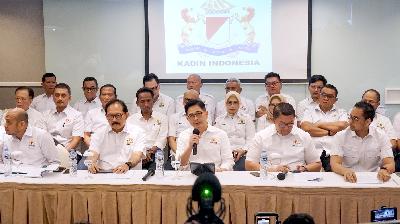
Arsjad Rasyid dan Anindya Bakrie sama-sama mengklaim dukungan Kadin daerah. Upaya hukum berlanjut.

Anindya Bakrie mendepak Arsjad Rasjid dari posisi Ketua Umum Kadin Indonesia. Dukungan Istana berbalik arah.
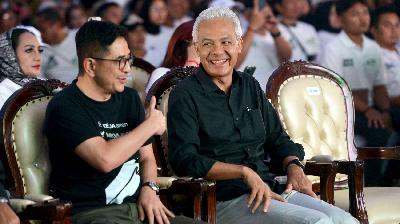
Perpecahan Kadin dikhawatirkan berdampak pada hubungan dengan investor serta relasi pengusaha-pekerja.
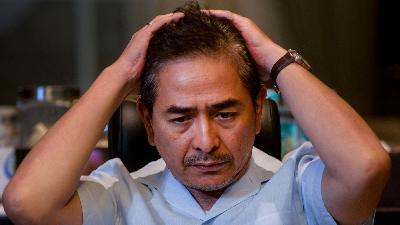
Anindya Bakrie mendongkel Arsjad Rasjid dari kursi Ketua Umum Kadin. Makin mirip partai dan dana luar negeri banyak masuk.
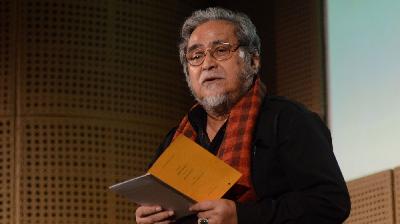
Aktor Slamet Rahardjo merasa nyaman dan tanpa tekanan sebagai seniman, yang menjadi jalan hidupnya.
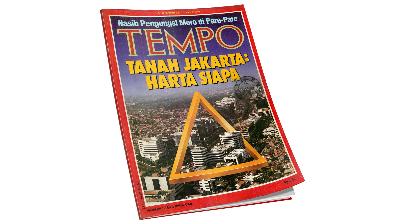
Cerita perebutan kekuasaan di Kadin Indonesia pada pertengahan 1990. Posisi ketua umum digoyang para pengurusnya.
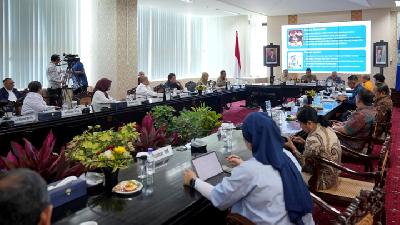
BPIP menggelar diskusi tentang etika sosial dan pendidikan.
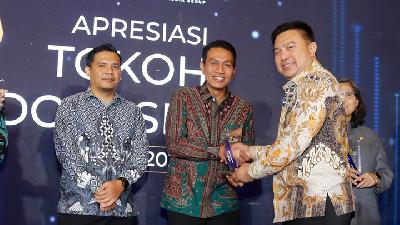
Sistem pelayanan kesehatan di Kabupaten Batanghari menjangkau hampir seluruh penduduk.

Kemendagri bersama Tempo diam-diam memperhatikan dan menilai kinerja para penjabat kepala daerah.

Apresiasi ini menjadi bukti bahwa penjabat kepala daerah mampu menggerakkan roda pemerintahan

Foto jendela jet pribadi mengungkap hubungan Kaesang Pangarep dan Gibran Rakabuming Raka dengan jejaring sejumlah pengusaha.
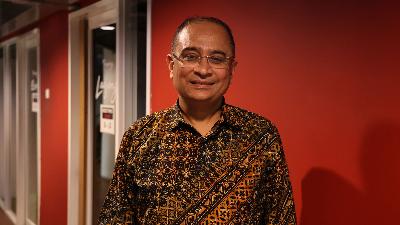
Duta Besar India untuk Indonesia, Sandeep Chakravorty, punya hobi memasak. Tak selalu mengikuti resep.
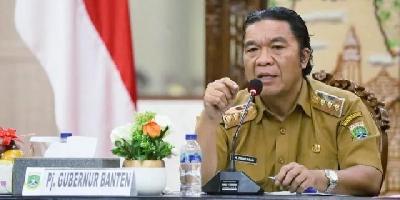
Al Muktabar menjelaskan pihaknya sedang mendalami dugaan pelanggaran yang dilakukan BR dari aspek kepegawaiannya.
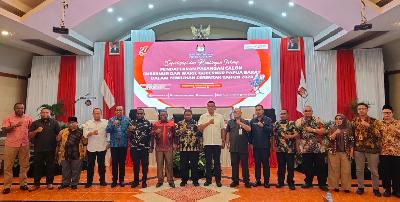
KPU Provinsi Papua Barat gelar sosialisasi dan bimbingan teknis mengenai pendaftaran pasangan calon Gubernur dan Wakil Gubernur
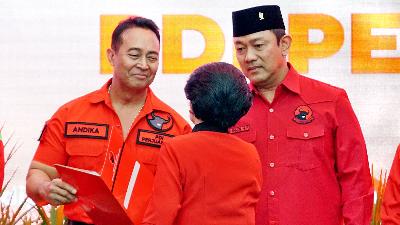
Partai Demokrasi Indonesia Perjuangan berupaya membendung jagoan yang didukung Istana. Proyeksi dini Pemilihan Umum 2029.

“Wong cilik” dan “Ratu Adil” adalah kata-kata yang hidup dari suatu alam pikir tertentu. Apakah alam pikir itu sedang berubah?
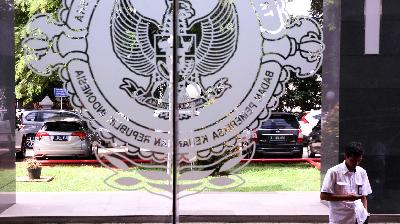
Revisi UU BPK selalu mandek di tangan DPR. Ada celah yang bisa ditunggangi pelaku korupsi.

Mengenal pesawat Gulfstream yang dipakai Kaesang Pangarep dan Erina Gudono ke Amerika Serikat.

Presiden yang meniru kepemimpinan raja Jawa akan tetap populer meski berperilaku diktator.

Aktor Reza Rahadian ikut aksi unjuk rasa dan berorasi di hadapan ribuan demonstran di gedung DPR. Terinspirasi sang nenek.
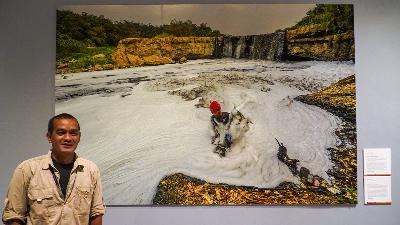
Fotografer Arie Basuki meraih Penghargaan Kehormatan untuk wilayah Asia Tenggara Oseania World Press Photo 2024.

Chiki Fawzi gundah akan kondisi politik Tanah Air belakangan ini. Turun ke jalan menyuarakan kegundahannya.
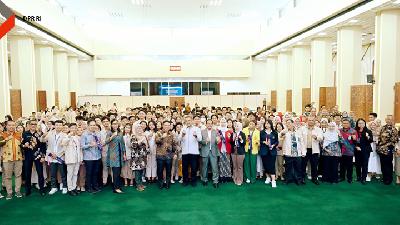
DPR RI berkolaborasi dengan Kementerian Pendidikan menghadirkan program Merdeka Belajar melalui Magang di Rumah Rakyat.

Pemerintah Kabupaten Gianyar berhasil menurunkan tingkat pengangguran dari 6,8 persen menjadi 2,96 persen.
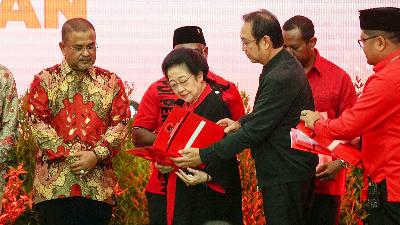
PDIP akan mengusung Anies Baswedan dalam pemilihan Gubernur Jakarta. Calon populer melawan partai koalisi Jokowi.

Masyarakat berdemonstrasi mengawal putusan Mahkamah Konstitusi yang hendak dianulir DPR untuk melanggengkan dinasti Jokowi.

Buku karya penulis dan blogger Agus Mulyadi diadaptasi menjadi film. Kisah asmara dibalut komedi.

Aktor dan model Maudy Koesnaedi jatuh cinta pada puisi. Bisa meredakan emosi.

Mitratel menyediakan akses internet di Pulau Berhala untuk memperkuat sistem pertahanan dan keamanan.

Kereta api menjadi kendaraan umum yang lebih ramah lingkungan dibandingkan dengan kendaraan pribadi atau pesawat terbang
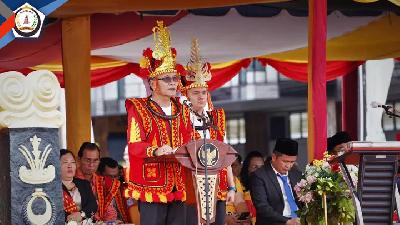
Budaya Unggul, Nias Selatan Maju
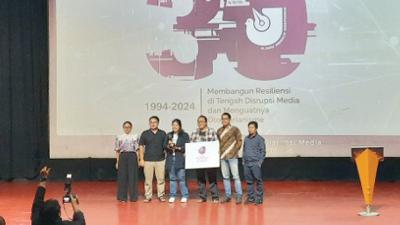
Siniar Bocor Alus Politik mendapatkan Udin Award. Penghargaan ini untuk Anda, pembaca.

Lahir dari keluarga kaya, M.H Thamrin menjadi macan Dewan Kota. Pejuang kemerdekaan yang berpihak kepada mereka yang lemah.

PDIP berniat mengusung Anies Baswedan di pilkada Jakarta. Bersiap melawan calon yang didukung Jokowi di daerah lain.

Nama Tommy Hermawan Lo mencuat setelah ramai inisial Mr T dalam kasus TPPO judi online. Direktur di perusahaan pengelola kasino.
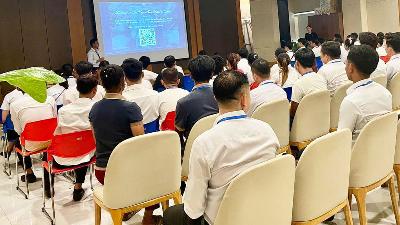
Pekerja migran Indonesia dipaksa bekerja menjadi operator judi online di Kamboja. Rekrutmen masih berlangsung.

Kerja dan strategi Satgas Judi Online tanpa arah jelas. Seharusnya berfokus pada bandar.
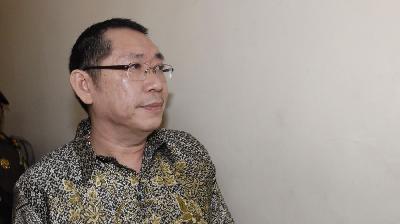
Wawancara Jerry Hermawan Lo. Ia membantah punya bisnis judi online.

Tak hanya berakting, Tamara Geraldine memperkenalkan budaya Batak dalam serial yang dia bintangi.
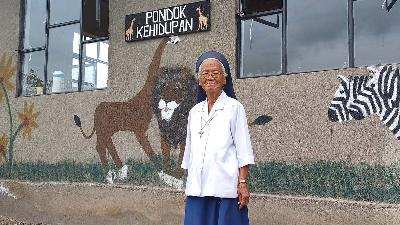
Cerita Suster Ima, biarawati asal Indonesia, yang mengabdi puluhan tahun di sebuah desa kecil di kaki Gunung Kilimanjaro.
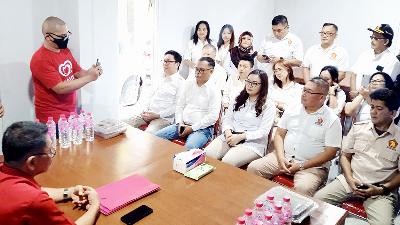
PDIP membuka diri mendukung Prabowo Subianto. Penjajakan lewat pemilihan kepala daerah serentak.
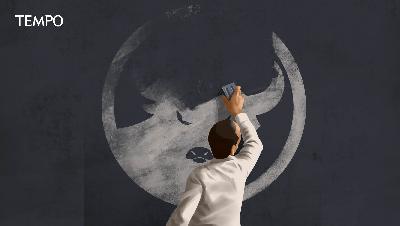
Pengkhianatan Jokowi kepada PDIP hendaknya menjadi pelajaran: politik mencari kekuasaan dengan mengikhtiarkan demokrasi.

Sikap kader dan pengurus Muhammadiyah terbelah soal jatah konsesi tambang. Ada bisikan pemerintah dan pengusaha.

Siapakah "Mister T" yang disebut pengendali judi online di Indonesia?
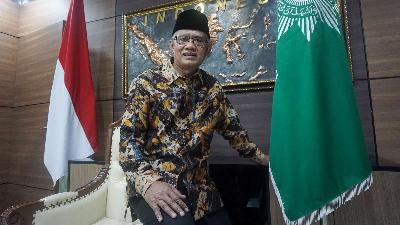
Wawancara Ketua Umum PP Muhammadiyah Haedar Nashir dan Ketua PP Muhammadiyah Busyro Muqoddas soal tambang ormas keagamaan.
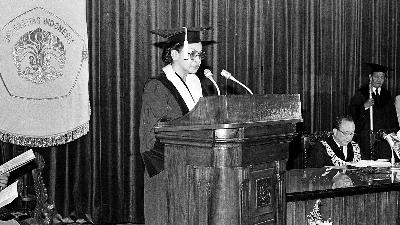
Achadiati Ikram wafat pada 21 Juli 2024 di usia 94. Mendedikasikan hampir seluruh hidupnya untuk mengembangkan ilmu filologi.
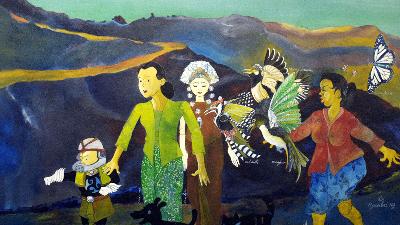
Herry Dim memamerkan wayang motekar di Galeri Orbital Dago, Bandung, Jawa Barat.

Arsip Tempo, sejarah dua organisasi kemasyarakatan Islam terbesar di Indonesia, Nahdlatul Ulama dan Muhammadiyah.
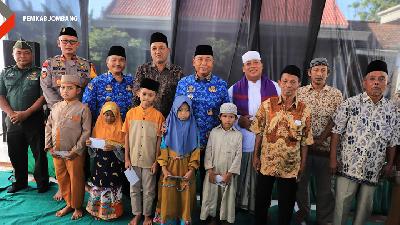
Acara pengajian Jumat Pahing merupakan kegiatan rutin yang diadakan oleh Muslimat NU Desa Ceweng.
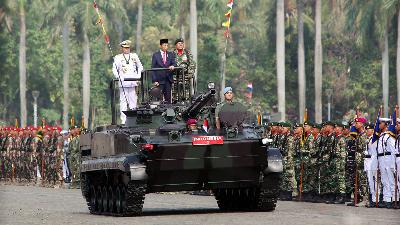
Tentara aktif menduduki sejumlah jabatan sipil pada masa pemerintahan Jokowi. Bakal bertambah dengan revisi Undang-Undang TNI.
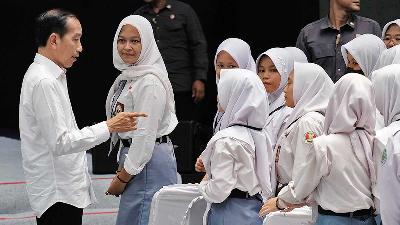
Komersialisasi pendidikan pada masa Presiden Jokowi makin marak. Menteri Pendidikan yang berlatar pebisnis jadi sorotan.

Dalam dua periode pemerintahannya, Jokowi menarik mundur demokrasi. Di akhir kekuasaannya, Indonesia menjelma menjadi negara yang bercorak legalisme otokratis.
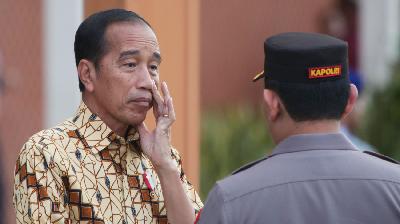
Selama menjadi presiden, Joko Widodo tak berhasil mereformasi Kepolisian RI. Ada Geng Solo di Mabes Polri.
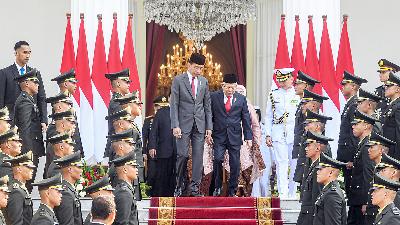
Jokowi menerapkan otokrasi untuk melanggengkan kekuasaan dan dinasti politik. Menggunakan hukum sebagai alat penekan.
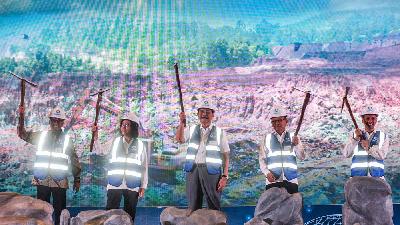
Peristiwa pekan ini: peluncuran Simbara, uji biodiesel di kereta, dan pengangkatan dua komisaris PLN.

Media memiliki peran besar sebagai pemantau yang akan melakukan check and balance kepada pemerintah.
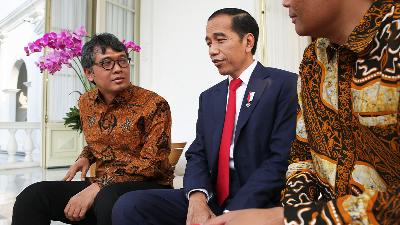
Media memang tidak dibredel. Tapi serangan digital kian marak.
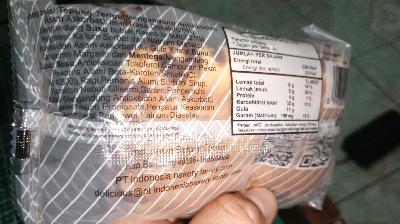
Komisi Kesehatan Nasional Cina melarang penggunaan sodium dehydroacetate. Berisiko memicu alergi, gangguan pencernaan, hingga kanker.
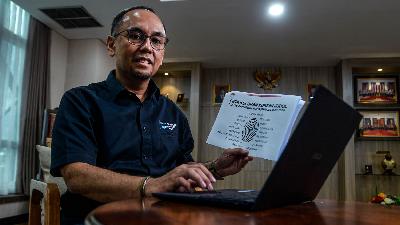
Temuan PPATK tentang pemain judi online dan transaksi judi online yang melibatkan anggota DPR. Mengapa sulit diberantas?

Sutradara Kamila Andini menginginkan perempuan mendapat lebih banyak kesempatan dalam industri perfilman Indonesia.
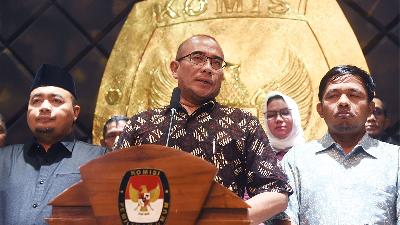
Ketua KPU Hasyim Asy'ari dipecat karena terbukti melakukan kekerasan seksual. Malah bersyukur.
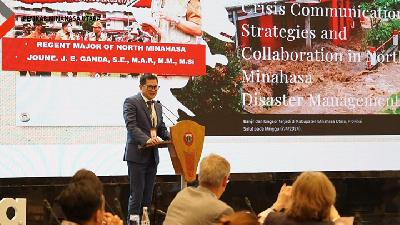
Tampil memukau peserta di sesi 3 setelah presentasi dari delegasi Seoul, Tokyo, Taipei City dan Singapura.
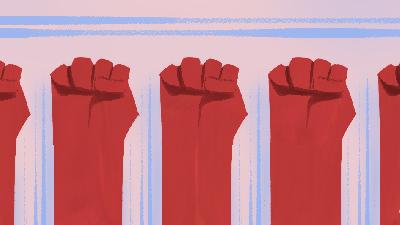
Mahkamah Rakyat adalah pendidikan politik bagi warga Indonesia. Penyeimbang kekuasaan dalam demokrasi tanpa kontrol.

Selain bermusik, Sal Priadi menekuni dunia akting dalam film dan teater.
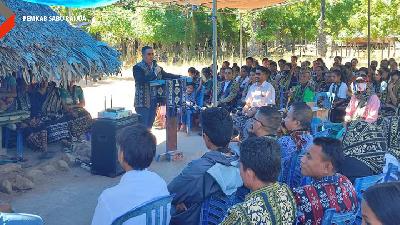
Memanfaatkan potensi sumber daya alam, seperti garam dan gula sabu.
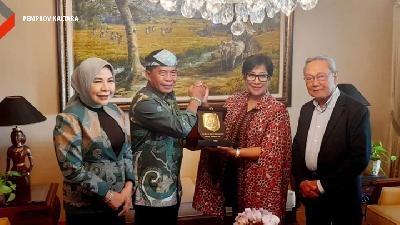
Zainal membawa kepala dinas pendidikan, kesehatan, dan tata pemerintahan untuk belajar dari Finlandia.
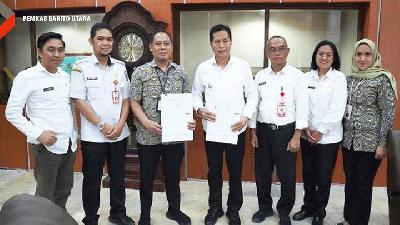
Predikat ini berarti masyarakat langsung aktif jadi peserta Jaminan Kesehatan Nasional atau JKN.

Peretasan Pusat Data Nasional mengancam data pribadi ratusan juta penduduk. Kegagalan pemerintah membangun sistem keamanan digital.
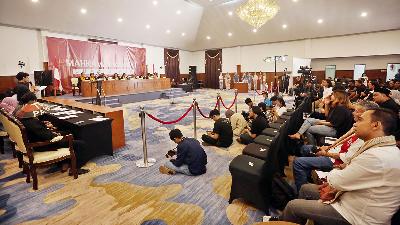
Ringkasan peristiwa dalam sepekan. Dari sidang Mahkamah Rakyat hingga rumah pensiun Jokowi mulai dibangun.

Pameran patung karya Gabriel Aries Setiadi bertajuk “Poetical Urgency” di Galeri Lawangwangi Creative Space, Bandung.
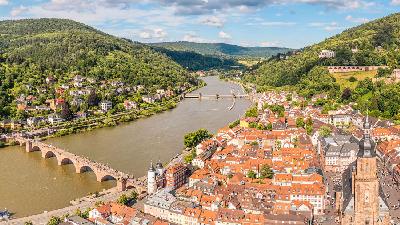
Jejak sastrawan dari beragam bangsa tercatat dan terpelihara di Heidelberg sejak ratusan tahun silam.

PDIP bersiap mengganti Hasto Kristiyanto setelah ia diperiksa KPK dalam kasus Harun Masiku. Mewaspadai cawe-cawe Istana.

Gelombang PHK terjadi di Tokopedia karena praktik inefisiensi. Buah kebijakan pemerintah yang kental konflik kepentingan.

Tokopedia menggelar PHK besar-besaran setelah menyatukan operasi dengan TikTok. Buntut operasi yang tak efisien.

Pemerintah hendak memberikan bantuan sosial buat keluarga pejudi online. Kok enak betul?
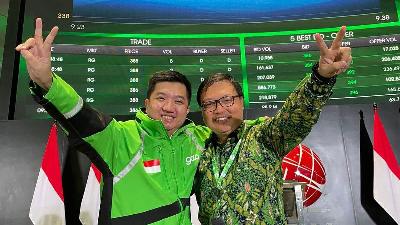
Pendiri GoTo dan Tokopedia ramai-ramai melepas saham. Tersisa kontrol pada investor baru.

Narendra Modi menjadi PM India untuk ketiga kalinya, tapi dukungan publik mulai turun. Posisi Rahul Gandhi malah makin moncer.
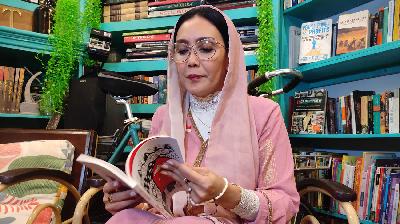
Politikus Rieke Diah Pitaloka merangkum pengalaman perjalanan spiritualnya ke Tanah Suci dalam puisi.

Fakta dan data mengenai judi online.

Benyamin membintangi puluhan film dan sinetron. Hampir semuanya bergenre komedi. Namun jenis komedinya berbeda-beda.
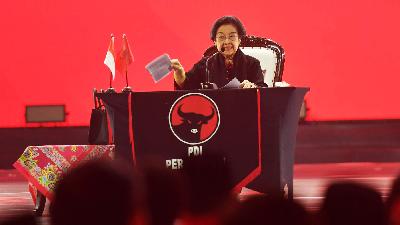
PDIP diam-diam berencana mendukung Anies Baswedan dalam pilkada Jakarta. Partai lain masih maju-mundur.
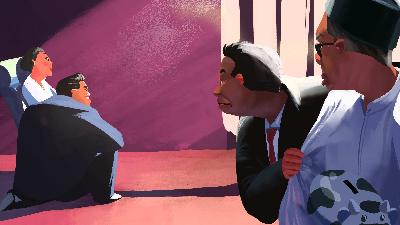
Muhammadiyah menarik dana triliunan rupiah dari BSI. Akumulasi berbagai masalah, dari soal operasi hingga penunjukan komisaris.

Pengalihan dana Muhammadiyah bisa memicu pemerataan skala usaha bank syariah. BSI terlalu mendominasi industri bank syariah.

Jejaring usaha Muhammadiyah mencakup bidang pendidikan hingga jasa keuangan. Berupaya membentuk ekosistem ekonomi tertutup.
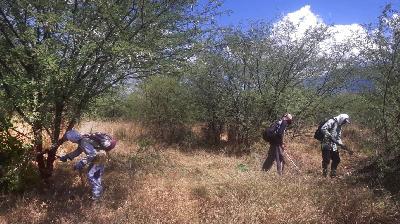
Tumbuhan jenis asing invasif menyerang banyak taman nasional di Indonesia. Belum ada cara penanganan yang tuntas.

Kafe yang menyediakan listening bar marak belakangan ini. Menghadirkan pengalaman menikmati musik analog menjadi menu utamanya.

Perjalanan waktu Yaya Riyadin mewujudkan komik dan novel impiannya. Kecintaan mewujud dalam karya hingga menghasilkan cuan.
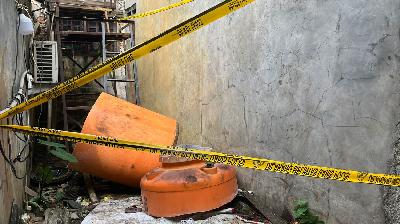
Mayat pria bertato ditemukan dalam tandon air tiga rumah kontrakan. Air digunakan untuk mandi dan mencuci sayuran.
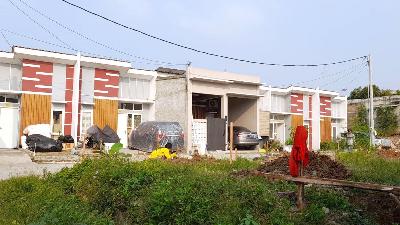
Pekerja dan pengusaha menilai Tapera tumpang-tindih dengan program MLT BPJS Ketenagakerjaan. Pengembang tetap ketiban berkah.

Narendra Modi akan menjadi Perdana Menteri India untuk ketiga kalinya setelah partainya menang dalam pemilu Lok Sabha.
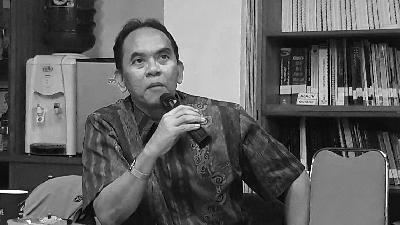
Hariadi Kartodihardjo meninggal. Ia kritikus kebijakan kehutanan yang tersisa.

Bermain tenis dan menyeduh kopi menjadi rutinitas aktor Dion Wiyoko belakangan ini. Menjaga tubuh tetap bugar.
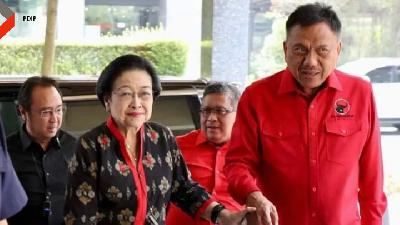
PDI Perjuangan memperingati Hari Lahir Pancasila. Berbagai kegiatan digelar memperingati Hari Pancasila.

PDI Perjuangan belum bersikap menjadi oposisi atau masuk koalisi Prabowo Subianto. Khawatir kehilangan kursi Ketua DPR.
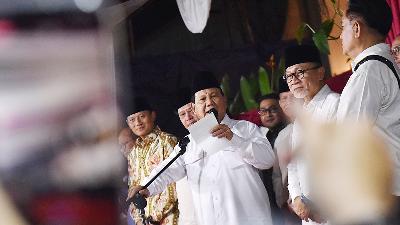
Relawan Jokowi dan partai koalisi terbelah menerima PDIP bergabung dengan koalisi Prabowo Subianto. Sikap elite PDIP tak jelas.

PDIP menghadapi dilema antara mempertahankan akses kekuasaan dan menjaga demokrasi. Perlu koreksi atas kerusakan 10 tahun ini.

Kongres Nasional India berusaha menantang Narendra Modi setelah mengalami kemunduran sejak 1989.

Presenter Daniel Mananta menjaga kesehatan mental dengan membatasi penggunaan media sosial.
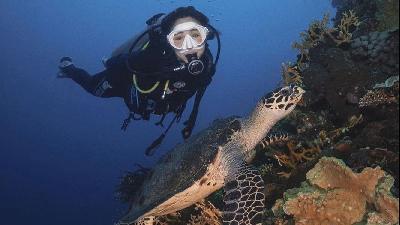
Aktris Yasmin Napper selalu menantikan waktu pulang ke Bali untuk menjalani hobi menyelam dan snorkeling.

Pemerintah membentuk gugus tugas pemberantas judi online. Kemenkominfo memblokir satu juta konten judi online.

Menteri Pendidikan Nadiem Makarim ditengarai merestui kenaikan uang kuliah tunggal (UKT). Ada upaya komersialisasi pendidikan.

Model dan presenter Nadia Mulya kian peduli pada lingkungan. Menerapkannya dalam kehidupan sehari-hari.
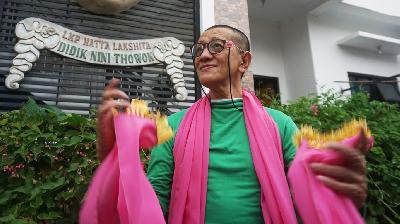
Maestro tari Didik Nini Thowok sangat menjaga kesehatannya. Rutin menjalani terapi akupunktur.

Pickleball berkembang dan kemudian menjadi tren di Indonesia. Olahraga asal Amerika Serikat itu mengusung slogan Easy and Fun.

The Rolling Stones menggebrak Amerika. Aksi panggung Mick Jagger tetap memukau di usia yang telah menginjak 80 tahun.
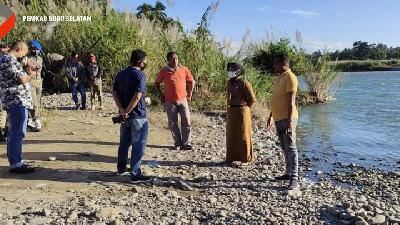
Tata kelola air dikelola secara berkelanjutan melalui program pengelolaan dan pengembangan sistem penyediaan air minum.
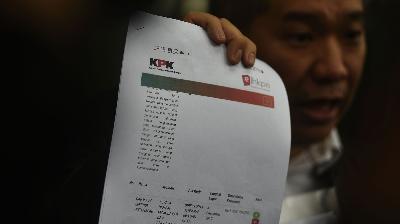
Kepala Bea-Cukai Purwakarta Rahmady Effendi Hutahaean dicopot setelah dilaporkan ke KPK. Dituduh menyembunyikan aset.
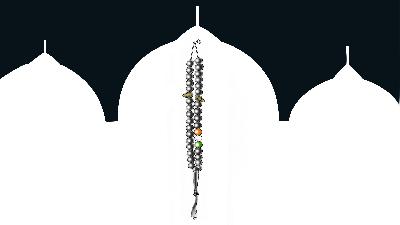
Narendra Modi ada kemungkinan kembali menjadi Perdana Menteri India untuk ketiga kali. Populisme dan kampanye berbasis agama.
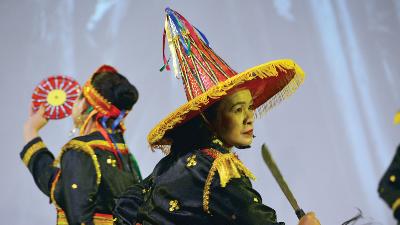
Para maestro seni tari dari Sumatera Barat dan Sulawesi Tenggara unjuk kebolehan menyuguhkan tradisi leluhur.

Jalan-jalan menjadi sarana eksplorasi tempat, makanan, dan suasana baru sekaligus pereda stres bagi aktris Ayudia Bing Slamet.

Partai Golkar melirik Bobby Nasution sebagai calon Gubernur Sumatera Utara. Ada persaingan di lingkup internal partai beringin.
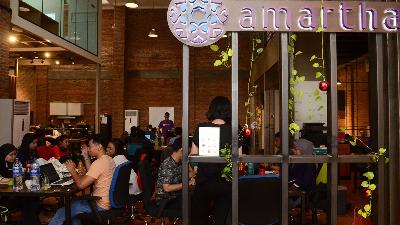
Bisnis fintech lending kian lesu. Imbal hasil terus menurun, pemilik dana memilih portofolio investasi lain.

Perdana Menteri India Narendra Modi menggalang dukungan kaum nasionalis Hindu dan narasi ancaman Islam.

Ada hierarki selain “sastra” dan “non-sastra”, yakni “sastra” dan “susastra”. Merembet ke predikat di toko buku.
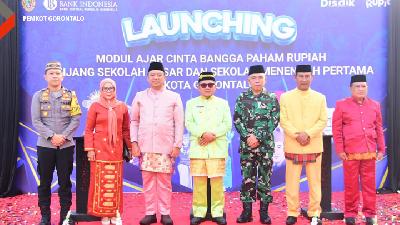
Pembangunan sumber daya manusia menjadi prioritas Wali Kota Gorontalo Marten Taha. #InfoTempo

Partai-partai mulai menyiapkan nama calon menteri di kabinet Prabowo. Mengincar kementerian "basah".

Menteri Pariwisata dan Ekonomi Kreatif Sandiaga Salahuddin Uno memastikan iuran wisata tak dibebankan ke tiket pesawat.

OJK memperketat pengawasan dan syarat modal bagi bank. Mencegah guncangan pada sistem keuangan, tapi mencekik bank kecil.

Penonton melemparkan benda-benda ke lapangan sepak bola saat pertandingan. Ada pesan yang jelas, ada yang misterius.

Empat bank besar yang menguasai pasar perbankan nasional ditopang modal dan inovasi. Bank kecil bakal kian terimpit.
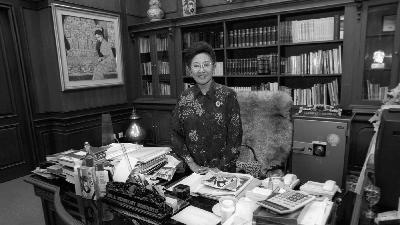
Pendiri Mustika Ratu, Mooryati Soedibyo, meninggal pada usia 96 tahun. Pionir dalam bisnis produk kecantikan tradisional.

Penyanyi Angga Puradiredja selalu menyempatkan diri bermain golf. Olahraga yang dia kenal sejak kecil.

Kartun: Yuyun Nurrachman

Kelas menengah terjepit: tak mendapat bantuan sosial, utang menumpuk, tabungan tak seberapa.
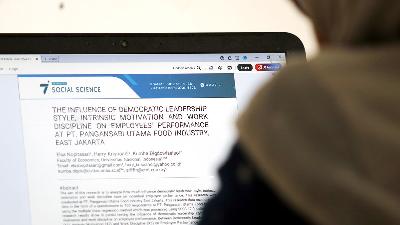
Guru besar Universitas Nasional, Kumba Digdowiseiso, terjerat academic misconduct. Pencatutan nama juga terjadi di kampus lain.
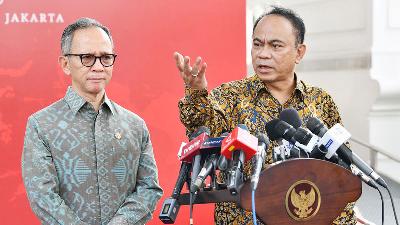
Rangkuman berita, dari darurat judi online di Indonesia hingga dugaan kekerasan seksual Ketua KPU Hasyim Asy'ari.
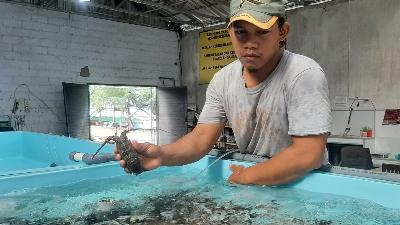
Aturan ekspor benih lobster membuat cemas pembudi daya. Ada dugaan budi daya hanya jadi kamuflase untuk membuka ekspor.

Koalisi media Rusia menyimpulkan bahwa 50 ribu tentara Rusia tewas dalam perang Rusia-Ukraina sejak Februari 2022.
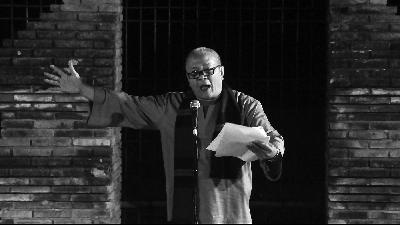
Yudhistira Massardi meninggal setelah merayakan ulang tahun ke-70 dengan peluncuran buku puisi. Aktif berkeliling membacakan puisi.

Banyak pesantren berkegiatan tanpa izin. Perlu standardisasi pada lembaga pendidikan berbasis agama itu.
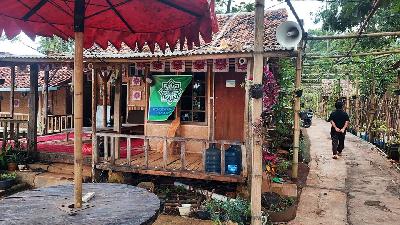
Sejumlah kasus hukum terjadi di pondok pesantren tak berizin. Lolos dari pengawasan Kementerian Agama lantaran tak terdaftar.
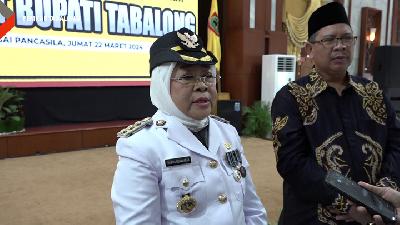
Diminta mengendalikan inflasi dan menjaga pemenuhan kebutuhan pokok selama bulan Ramadan. #InfoTempo
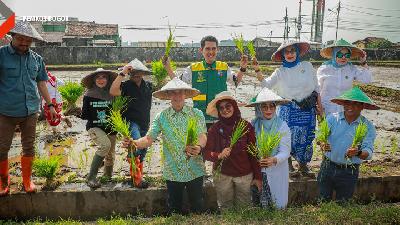
Juga sebagai upaya mengetaskan kemiskinan. #InfoTempo

Jika dinasti politik keluarga Jokowi berkumpul saat Lebaran.
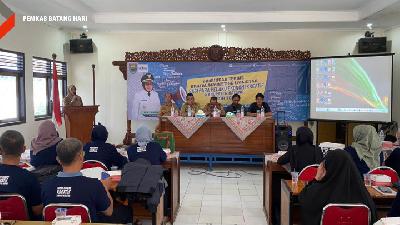
Pelatihan digital marketing ini bertujuan agar pelaku Ekraf bisa membawa produk mereka naik kelas. #InfoTempo
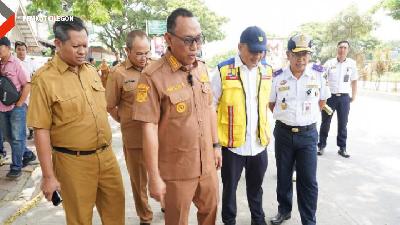
PUPR mendukung program pemerintah daerah dalam perbaikan jalur JLS, dengan memberikan bantuan perbaikan jalan sepanjang 4,74 KM

Mengenal bus, salah satu moda transportasi favorit untuk mudik Lebaran 2024, dalam angka.
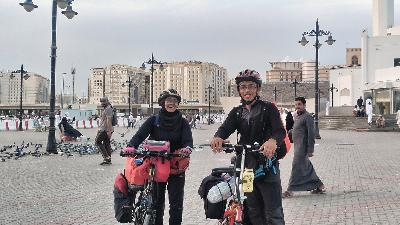
Umrah mandiri dengan model backpacker kian diminati. Bisa menekan bujet dan waktu ibadah lebih fleksibel.

Langkah pemerintah melarang umrah mandiri hanya menguntungkan agen wisata. Pemerintah Arab Saudi mempermudah siapa pun untuk berumrah.

Saat Lebaran, penyanyi Andien memilih memakai baju lama yang dikreasikan kembali. Mengusung prinsip sustainable fashion.

Sambil mudik Lebaran, aktris Shareefa Daanish selalu menyempatkan diri berlibur outdoor bersama keluarga.

Denica Riadini-Flesch berupaya memberdayakan ibu-ibu perajin di desa-desa lewat SukkhaCitta. Membuat busana ramah lingkungan.
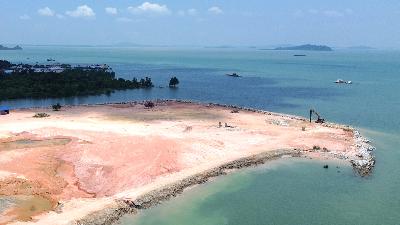
Sejumlah perusahaan mulai mengajukan izin pemanfaatan sedimen, termasuk pasir laut. Menguruk kawasan reklamasi korporasi besar.

Sejumlah proyek di Batam kekurangan pasokan pasir. Pengembang tak bisa serta-merta memanfaatkan material sedimen laut.

Penulis Asma Nadia tengah menyiapkan aplikasi menulis khusus anak. Ingin menumbuhkan minat baca anak-anak.

Aktris Alyssa Abidin menjadikan yoga dan menulis cara menenangkan jiwa.

Karateka Andi Jerni belakangan mulai menekuni kickboxing. Ia juga terjun ke dunia akting.
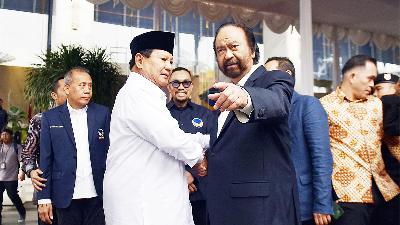
Prabowo Subianto gencar melobi PDIP, NasDem, dan PKB. Peluang masuk kabinet Prabowo terbuka lebar.

Tujuh anggota PPLN Kuala Lumpur divonis bersalah dalam kasus pelanggaran Pemilu 2024. Gara-gara daftar pemilih tetap.
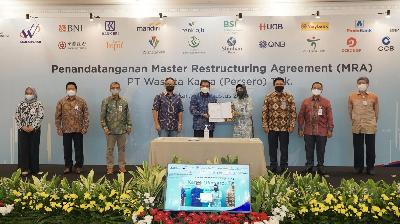
Bank Himbara menahan penyaluran kredit untuk BUMN karya. Proyek penugasan pemerintah turut membebani perbankan.

Pameran kolaborasi karya Eggy Yunaedi bersama sembilan petani garam Lasem. Menyuguhkan kreasi unik dengan material garam.

Menjelang Ramadan, perancang busana Dian Pelangi berbenah rumah agar keluarganya nyaman menjalani puasa.
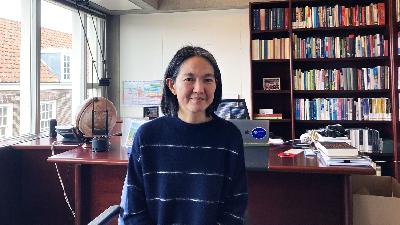
Diana Suhardiman menjadi orang Indonesia pertama sebagai Direktur KITLV. Ia juga guru besar di Universitas Leiden.

Selain sibuk mempromosikan film dokumenter terbaru, sutradara Nia Dinata tengah menyiapkan siniar seputar menopause.
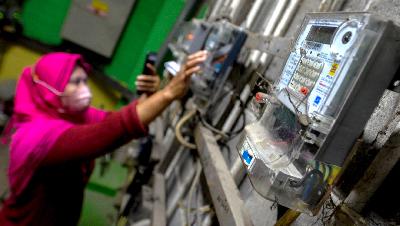
Pemerintah membuka opsi pengalihan subsidi energi untuk makan siang gratis. Mengancam rumah tangga miskin.

Ketua KPAI Ai Maryati Solihah menjawab soal kasus perundungan di lembaga pendidikan, seperti di SMA Binus School dan pesantren.

Penampilan God Bless di pelataran Galeri Nasional bersahaja, akrab, hangat. God Bless bagian dari estetika mutakhir kita.

Fine dining biasanya identik dengan sajian mewah. Tapi, belakangan, banyak tempat fine dining yang unik dan harganya terjangkau.

Praktik korupsi makin merajalela di lembaga hukum Indonesia. Tergambar dalam kasus korupsi Sekretaris Mahkamah Agung.
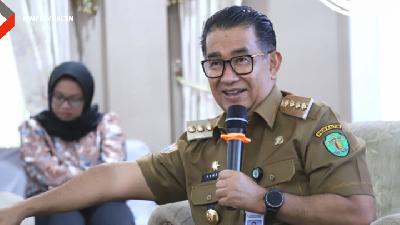
Pemerintah Provinsi Kalimantan Timur turut memberikan perhatian serius terhadap sektor pariwisata daerah. #InfoTempo
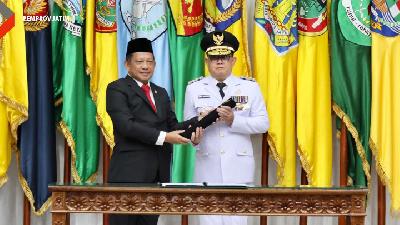
Adhy menggantikan Khofifah Indar Parawansa yang berakhir masa jabatannya pada 13 Februari 2024. #InfoTempo

Selain jalan-jalan, aktris dan produser film Lola Amaria gemar membuat kue tradisional. Bermula dari coba-coba.
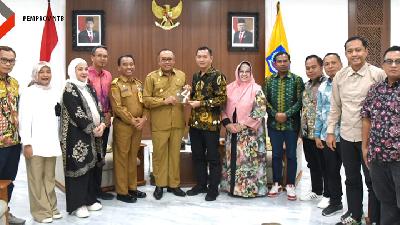
Rakornas KPI dijadwalkan akan diselenggarakan pada bulan Mei 2024 mendatang. #InfoTempo
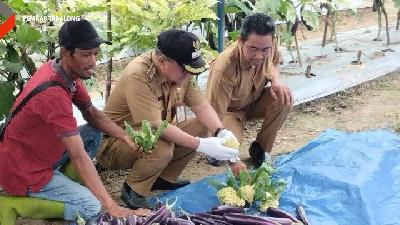
Anang meyakini kondisi keuangan daerah yang membaik setelah pandemi COVID-19 dapat menunjang pembangunan #InfoTempo

Koalisi pendukung Anies-Muhaimin bersiap mengajukan hak angket kecurangan pemilu. Menunggu sikap Megawati Soekarnoputri.
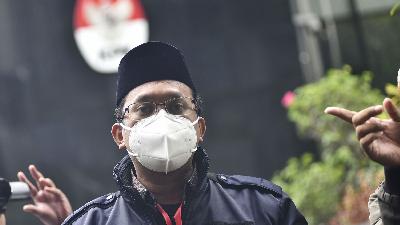
Deputi Penindakan KPK ditengarai menolak penetapan tersangka Bupati Sidoarjo Ahmad Muhdlor Ali. Diduga karena dukungan politik.

Hun Many, putra bungsu mantan perdana menteri Hun Sen, terpilih sebagai wakil perdana menteri dalam sidang luar biasa parlemen.

Selain menggandrungi olahraga, pemeran film Nadila Ernesta suka mengoleksi sepatu, terutama sneaker.
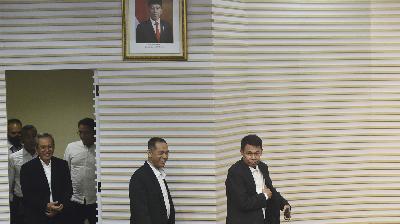
Presiden Joko Widodo tak kunjung mengajukan nama pengganti Ketua KPK Firli Bahuri ke DPR. Dampak pecahnya koalisi pemerintah.

Jika Prabowo-Gibran resmi menjadi presiden dan wakil presiden, resmi pula kita mendapatkan dinasti politik.

Jumlah pemilih di Bogor mencapai 3,88 juta orang. Berkontribusi 10 persen dari total pemilih di Jawa Barat. #InfoTempo
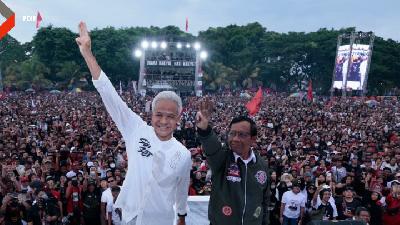
Ganjar menonjolkan realitas sosiologis untuk memastikan dukungan dari rakyat Jawa Timur tetap tinggi. #InfoTempo
Independent journalism needs public support. By subscribing to Tempo, you will contribute to our ongoing efforts to produce accurate, in-depth and reliable information. We believe that you and everyone else can make all the right decisions if you receive correct and complete information. For this reason, since its establishment on March 6, 1971, Tempo has been and will always be committed to hard-hitting investigative journalism. For the public and the Republic.